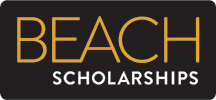Undergraduate Programs
Three undergraduate degrees are offered by the Physics and Astronomy Department, as well as a minor.
The Bachelor of Science degree is designed for students interested in immediate employment in industry or wishing to continue on to a Master's or Ph.D. degree in physics or a related field.
The Bachelor of Arts degree is appropriate for those preparing for teaching careers in the physical sciences at the secondary level, as well as those whose goal is a liberal art education with an emphasis on physics, or engineers interested in a double major.
The Materials Science option is designed primarily for those interested in careers that involve the physics of materials and the study of materials in relation to their applications. It is particularly appropriate for those seeking employment in private industry or government service as well as those students contemplating graduate work in these fields.
Additional information can be found in the Physics and Astronomy - CSULB Catalog (2024-2025).
Dr. Thomas Gredig
Appointment through Beach Connect
Office: HSCI-272d
Phone: 562.985.4922
Email: Thomas.Gredig@csulb.edu
Research Project for Undergraduates
We encourage all undergraduate students, irrespective of their career choice, to participate in a project with one of the faculty. These projects generally take place during the semester or the summer. This is an excellent way to obtain hands-on experience through experimental or theoretical physics activities and get a taste of what beyond-the-classroom Physics is about.
To enable B.S. and B.A. students to succeed in their future endeavors in industry, graduate programs or teaching, we designed classes that train physics majors to achieve the following learning objectives:
- Have a firm grasp of the theories that form the basis of mechanics, electricity and magnetism, thermodynamics, quantum mechanics, special relativity, and some knowledge of optics and/or nuclear and particle physics and/or condensed matter physics and/or astrophysics.
- Be able to apply the principles of physics and appropriate mathematical methods to usefully approach and solve some appropriate real world problems.
- Be familiar with experiments upon which a basic understanding of physics rests, and have a familiarity with the uses of computational tools in physics.
- Be familiar with basic laboratory equipment and basic symbolic software computational techniques.
- Be able to discuss, design, and carry out some simple experiments to answer basic questions or to demonstrate basic principles.
- Be able to keep comprehensive laboratory notebooks when appropriate.
- Be able to communicate results through written reports and oral presentations.
- Be able to speak to the role of science in our society, which requires a basic broader understanding of societal institutions, cultures, literacy, and the arts.
Additional Resources
The following resources are available to undergraduate students.
Insights into Physics Careers
The American Physical Society (APS) offers a series of webinars to connect you with the expertise of individuals who can offer insight into physics careers, educational programs, and professional development for students, working physicists and educators.
Registration for upcoming webinars and recordings of past webinars are available on APS Webinars.
Beach Scholarships
BeachScholarships is a centralized database of all scholarship opportunities at California State University, Long Beach.






